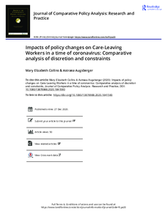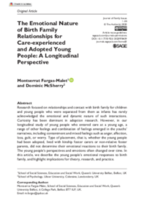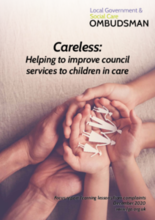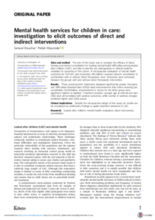Displaying 271 - 280 of 1185
Through a diverse range of examples of how people are meeting the challenge of responding to the effects of this public health emergency, CELCIS hopes to record, reflect on, inform, and inspire others about the impact that these are having in the lives of care experienced children and young people, and all those who work and volunteer across public and voluntary services to support them.
This report shares the findings of a focused piece of research carried out in Scotland by CELCIS and partners at the University of Edinburgh. The aim of the research was to understand care leavers' experiences of digital exclusion before and during the COVID-19 restrictions in Scotland in 2020.
This book outlines the nature of contemporary children’s care sector in England, highlighting both the demographics of those currently in care and the nature of available provision. It provides an account of the issues facing children and young people in care in terms of their vulnerability to criminalisation and exploitation.
This policy analysis examines the impact of COVID-19 policy guidance on the role of workers who provide outreach to transition-age care leavers.
This study investigates the extent and causes of child abandonment and various practices and services in relation to prevention of child abandonment in Denmark and other high-income countries.
In this article, the authors describe young people’s emotional responses to birth family, and highlight implications for theory, research, and practice.
This chapter will record the views of a small sample of elders (now in their 70s, 80s and 90s), who grew up in Barnardo’s facilities in the UK, on being separated from their siblings and how they re-connected with their brothers and sisters in old age.
In this report, the UK Local Government and Social Care Ombudsman is highlighting the experiences of children in the care system – and the difficulties they face when councils get things wrong.
A recent watchdog report - which looks at the journey of children coming into care in the UK, creating stability, contact arrangements and eventually leaving care - has revealed "heart-breaking decisions about children in care," says this article from BBC News.
The aim of this study was to compare the efficacy of direct therapy and indirect consultation for treating mental health difficulties among looked after children (LAC), and also to identify any demographic or clinical predictor variables for outcomes in this cohort.





